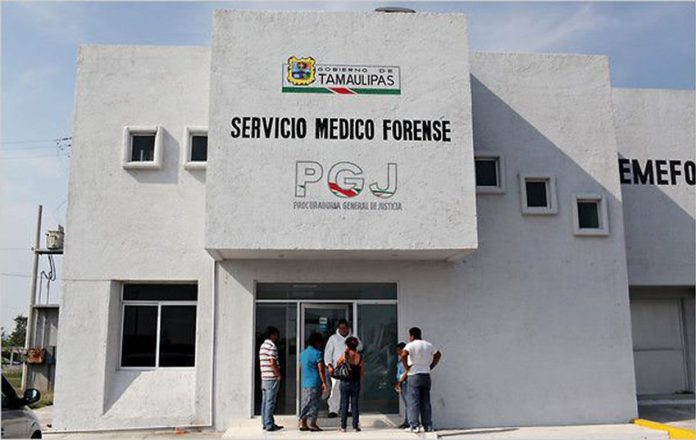Mexico’s forensic services authorities are operating morgues without clear laws, denying access to the families of missing persons and even disappearing bodies shortly after they take possession of them.
That is the claim of groups made up of family members of disappeared persons, an allegation that contrasts sharply with the official position of the authorities themselves.
Earlier this year, the newspaper El Universal asked authorities in several Mexican states about the situation in their morgues. The majority responded that they didn’t have any problems despite many receiving an increasing number of bodies due to increases in violent crime.
Among those that said that there were no problems was the Jalisco Institute of Forensic Sciences (ICJF), which operates 11 morgues in the state and made headlines two weeks ago for its “morgue on wheels,” revealing that there were indeed problems.
The institute was using two semi-trailers, including one that was shuffled around the Guadalajara metropolitan area, drawing the ire of residents who complained of fetid odors. The trailers were providing storage for about 300 unclaimed bodies.
According to former forensics chief Luis Octavio Cotero Bernal, who was dismissed for his role in the case, the Jalisco Attorney General’s office acquired the first trailer in 2013.
With more and more bodies arriving at morgues across Mexico that are already short on space, getting rid of them as quickly as possible has become a priority for some.
There is no law, El Universal reported, that specifies how long a morgue is required to hold an unclaimed body before it can be sent for burial in a common grave.
In addition, there is no federal authority that oversees the collection of DNA samples from unidentified corpses, meaning that states are free to act as they see fit.
In Tijuana, which with 1,559 homicide victims in the first eight months of the year was Mexico’s most violent city, the secretary of a Baja California association for families of disappeared persons said that bodies are quickly transferred from the city’s morgue to a municipal cemetery.
“. . . Authorities have turned it into a machine that practically disappears people. Out of necessity or because of negligence, the timeframes for sending bodies to a common grave are not complied with. If it was 30 days before, they reduced the time by half but now it’s not even that. [Bodies spend] between five and seven days in refrigeration and from there, they go into the ground,” Fernando Ortigoza said.
Geovanni Barrios, president of the Justicia Tamaulipas collective, said that morgues in that state are like bunkers because those looking for missing loved ones are prohibited from entering. Authorities argue that subjecting homicide victims to outside review amounts to re-victimization.
Barrios also said that people searching for family members receive little or no support from prosecutors’ offices across the country.
“They send you from one place to another, you even have to travel to Mexico City, they don’t realize that your life is in danger, they expose you,” he said.
In some states, authorities don’t have the personnel or resources to cope with the number of bodies they receive.
In Guerrero, one of Mexico’s most violent states, forensic experts have reported that they are forced to work at breakneck speed with limited resources, meaning they even have to reuse surgical gloves when carrying out examinations of corpses.
Until last year, there was only one forensic specialist working in all of Sinaloa.
With this year on track to surpass 2017 as the most violent year in recent history, morgues in many cities across the country are facing an increasing demand for their services, which in some cases they are not equipped to meet.
Statistics from the National Public Security System show that after Tijuana, the cities with the highest number of homicides in the first eight months of the year were Acapulco, Guerrero; Culiacán, Sinaloa; León, Guanajuato; Benito Juárez (Cancún), Quintana Roo; Irapuato, Guanajuato; Guadalajara, Jalisco; Reynosa, Tamaulipas; Tlaquepaque, Jalisco; and Morelia, Michoacán.
Source: El Universal (sp)
